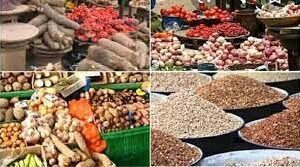The Project Manager, Green Innovation Centre under GIZ, Ms.
Caroline Trimborn, disclosed that the organization has budgeted 17 million Euros for the next five years in its green innovation programme in Nigeria.
In this interview with JOHN OBA at the just concluded training for agric reporters in Abuja, Trimborn speaks on the programme and other issues.
The objective of the Green Innovation Programme GIZ through it Green Innovation programme wants to improve the productivity and income of smallholder farmers in Nigeria.
This is one of our objectives and our target is to reach 200,000 smallholders’ farmers working in rice, maize, Irish potato and cassava.
We are in Kano and Kaduna for maize, Irish potato for Plateau State, and we do rice in Benue, Nasarawa and Cross River States, and then we do cassava in Oyo and Ogun States.
So we want to improve their income and productivity and what you (journalists) have learnt today.
We are also working with up and down stream companies in these value chains to improve their turnover and employment.
So you can see how comprehensive it is as it follows a value chain approach to improve financial value chains in Nigeria.
We have trained roughly 150, 000 smallholder farmers and we have very close monitoring of farmers on the different value chains.
To reach this number is very important and as you can see very large scale approach and we can make that happen because we are working with Agricultural Development Programmes (ADPs), and we are trying to increase the capacity of state extension agents so that they can deliver trainings and to also guarantee sustainability and institutionalization of different training approaches.
Assessment of 150, 000 trained farmers We have different assessments because they are changing like in the different value chains, but generally they have improved their income.
For example, in potato they could double their productivity and generally we have an increase in income along the value chains.
Challenges farmers encounter The major challenges for farmers have always been finance, high quality input.
For example, you need an improved and quality seeds, which access are difficult generally, another difficulty is to have finance ready.
We are preparing for another agric finance, we are currently working with bank CEOs, and so they can be ready for agriculture financing.
Agric is a different sector, farmers need to have proper understanding of the sector, finance solutions and this is what we are working on.
Agric financing programme We will start our finance programme in November 2018.
The budget from the green innovation programme centre is 17 million Euros until 2022.
The programme on agric finance is around 3.5 million Euros.
What we are looking at is working with banks so they can be ready to finance smallholder farmers.
Criteria for accessing finance That really depends on the banks we are working with.
So the farmers can access this money from the banks.
So we are working with the banks to come up with good criteria that farmers can meet and apply for their funds.
Collaterals from farmers Again it is very specific to the different institutions on the kind of schemes they are coming up with.
You always have some kind of collaterals that will be part of the schemes.
For example, we are working with the Bank of Industry on the mechanization scheme.
We are working on a specified scheme so that farmers can apply to that.
Areas government should focus on We are working together with the government to increase capacity.
We are working with state extension agents.
But also we are working a lot with private sector organizations.
I think generally, if you see along the value chains, we have different intervention plans and it is important to have this view to see agriculture as a business so you don’t increase production without seeing where the market is.
So I think this is where the government is already looking at and we are looking at that as important also.
Blueprint gives you the latest Nigerian news in one place. Read the news behind the news on burning National issues, Kannywood, Videos and the Military



